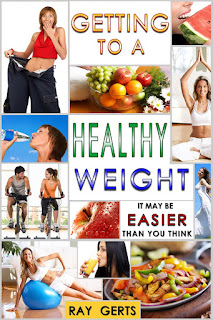Avoid Empty Calories
Dieting is hard. But avoiding "empty" calories helps you reach a healthy weight without feeling like you're dieting. So what are empty calories? All food has calories, healthy food has calories but you get nutrition with those calories. Food and drinks that don't have any nutritional value are full of empty calories.
Your body needs a certain amount of energy each day. Energy comes from food in the form of calories. Calories let you function and keep doing your daily activities. But after your body meets its needs, it stores extra calories as fat. Most of us get plenty of calories in our diet—often too many.
Foods with empty calories have lots of calories but very few nutrients like vitamins and minerals. "Convenience foods," like packaged snacks, chips, and sodas, are common sources of empty calories. Nutrient-rich foods, on the other hand, have a lot more nutrients in relation to their calories. A few examples are vegetables, peanut butter, bran cereal with fruit, and fish.
Tips for avoiding empty calories
Instead of this: Choose this:
Sugar-sweetened drinks like soda, energy drinks, and sweetened coffee drinks, not good. Water, no-sugar-added fruit juices, tea or coffee, tomato juice, and other vegetable juices,good.
Whole milk and dairy products made from whole milk, not good. Fat-free or 1% milk and other low-fat dairy products, good.
High-fat meats like many cuts of beef, corned beef, pork sausage, and luncheon meats,not good. Low-fat ground beef, turkey breast, and skinless chicken, good.
Sugary treats like cakes, candies, and cookies, not good. Fruits, low-fat yogurt, and treats made with less sugar, good.
Chips, crackers, french fries, and other fried treats, not good. Baked chips, air-popped popcorn, and whole-grain crackers, good.
Breads made with refined flour such as white, sourdough, and ciabatta breads, not good. Breads made with whole grains: whole wheat, rye, and sprouted wheat (They have lots of fiber), good.
High-fat salad dressings, not good. Low-fat or yogurt-based salad dressings, good.
Tips for making the most of the calories you eat:
Choose foods that have lots of nutrients. Look for foods that are high in:
Fiber. It's found in beans and peas.
It's also in fruits, vegetables, nuts, and whole grains.
Potassium. It's in potatoes and bananas as well as other fruits, vegetables, and milk products.
Calcium. It's in milk and milk products (including yogurt and cheese). It's also in certain leafy green vegetables (broccoli, spinach, kale), beans and peas, and some nuts.
Vitamin D. You can find it in egg yolks, liver, saltwater fish, and vitamin D-fortified dairy products.
Magnesium. Sources include nuts, whole grains, dark green vegetables, seafood, and cocoa.
You can lose weight without starving yourself, simply change what you eat. Losing weight is about making better choices.
My new e-book is available on Smashwords.com, just type “getting to a Healthy Weight” in the search box at the top of the home page.



Comments